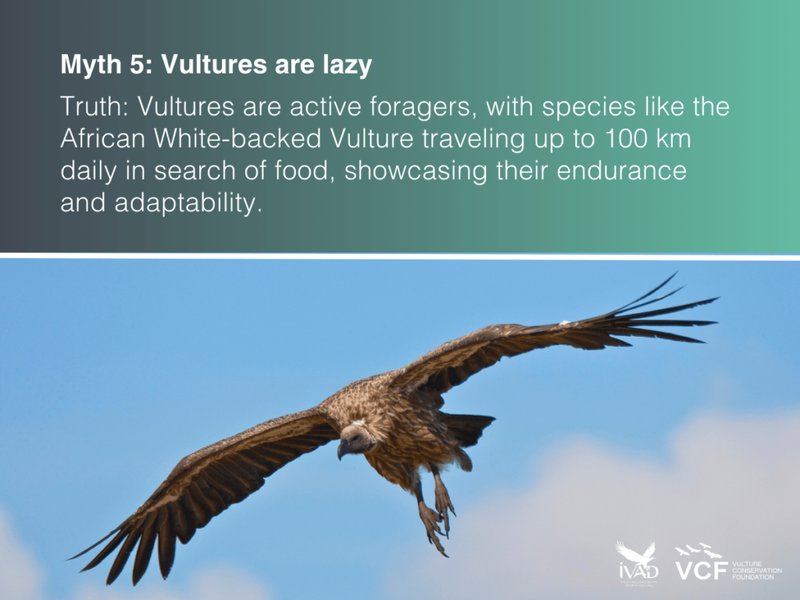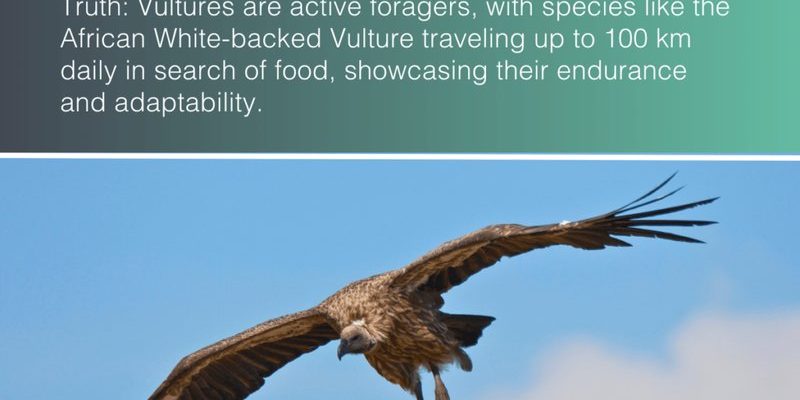
So, what are some of the most common myths about vultures, and why do they persist? Let’s dig into the misconceptions that surround these birds, and hopefully, by the end, you’ll see vultures in a new light.
Myth 1: Vultures Are Dirty and Disease-Ridden
One of the most widespread myths about vultures is that they’re dirty animals that spread disease. This idea likely stems from their diet. Vultures primarily feast on carrion, which is the decaying flesh of dead animals. You might think that means they’re filthy, but here’s the thing: vultures are actually incredibly clean animals.
Vultures have a unique adaptation—they possess a highly acidic digestive system that helps them break down harmful bacteria and prevent diseases. In fact, their guts can neutralize pathogens that would be harmful to humans and other animals. By consuming dead animals, vultures help reduce the spread of disease. So, rather than being dirty, they’re playing a crucial role in keeping our environment healthy.
Why Their Cleanliness Matters
Their cleanliness isn’t just good for them; it’s good for us too! By eating dead animals, vultures limit outbreaks of diseases like anthrax and rabies, which could spread if left untouched. So, the next time you see a vulture, think of them as a safeguard for your health and the health of your community.
Myth 2: Vultures Kill Animals for Food
Another misconception is that vultures actively hunt and kill animals for their meals. This myth could be due to the dramatic image of vultures circling a freshly dead animal in the wild. However, vultures are scavengers, not hunters. They rely solely on carrion—the remains of animals that have already died from natural causes or accidents.
What’s fascinating is that vultures have an excellent sense of sight, allowing them to spot carcasses from great distances. They’re not out there looking to take down live prey. Instead, they’re nature’s cleanup crew, ensuring that deceased animals don’t pile up in the environment.
How Scavenging Benefits the Ecosystem
By eating carrion, vultures help recycle nutrients back into the ecosystem. As they consume dead animals, they help prevent the spread of decay and the stench that comes with it. This scavenging behavior is essential for maintaining a balanced ecosystem, promoting healthier environments for all living creatures.
Myth 3: All Vultures Are the Same
Not all vultures are created equal! Many people assume that all vultures look alike or behave in the same way, but there are numerous species with distinct characteristics. For instance, the Turkey Vulture, with its distinctive red head and keen sense of smell, is quite different from the Griffon Vulture, which relies on eyesight for locating food and has a bigger wingspan.
Each species has adapted to its environment and has unique behaviors that help it survive. Understanding these differences can help challenge the misconception that vultures are just “generic” birds of prey.
The Diversity of Vultures
In total, there are about 23 species of vultures around the world, each with unique traits. Some, like the California Condor, are critically endangered, while others thrive in their habitats. This diversity showcases the adaptability of vultures and their essential roles in different ecosystems.
Myth 4: Vultures Are a Sign of Bad Luck
Many cultures associate vultures with bad luck or death. You might hear people say that if a vulture crosses your path, it’s a bad omen. This belief likely comes from their association with death, given they are often seen near carcasses. However, this perception couldn’t be further from the truth!
Rather than being harbingers of bad news, vultures should be viewed as symbols of environmental health. Their presence signifies a well-functioning ecosystem since they feed on dead animals that would otherwise lead to decay.
Changing the Narrative
We need to shift our perception of vultures as symbols of death to the reality that they’re nature’s recyclers. Their role helps sustain life by cleaning up the landscape and preventing disease. So, instead of bad luck, maybe we should see vultures as good fortune for our environment!
Myth 5: Vultures Don’t Care About Each Other
It’s easy to think that vultures, being scavengers, don’t exhibit social behavior. Many wrongfully assume that they only care about getting their next meal. In reality, vultures are quite social and often live in groups. They communicate with each other, often engaging in complex social interactions and behaviors.
For instance, you might notice vultures roosting together in trees or soaring in the sky in flocks. They also exhibit behaviors like grooming each other, which helps strengthen their social bonds.
The Importance of Social Structures
Social structures among vultures are vital for their survival. By flocking together, they can easily locate food sources, warn each other of danger, and maintain social cohesion. So, the next time you see vultures, remember that they’re not just lone scavengers; they’re part of a community working together.
Myth 6: Vultures Are Endangered and Will Soon Disappear
While many vulture species are indeed threatened or endangered, the idea that all vultures are on the brink of extinction is exaggerated. Conservation efforts are underway to protect these birds and their habitats. Many organizations are dedicated to ensuring that vultures thrive in the wild and don’t vanish from our skies.
It’s important to support conservation efforts and understand the various challenges vultures face, like habitat loss and poisoning from consuming carcasses laced with toxins. By being informed, you can help spread the word and contribute to protecting these vital creatures.
Supporting Vulture Conservation
You can help vultures by participating in local conservation initiatives, supporting wildlife organizations, and spreading positive awareness. Every small action contributes to the bigger picture of vulture conservation, ensuring that future generations can appreciate their beauty and importance.
Vultures are often misunderstood, but when you peel back the layers of these myths, you’ll find a treasure trove of valuable information about their role in the ecosystem. They’re not dirty or dangerous; rather, they’re essential, social animals that help maintain environmental balance.
So, let’s celebrate vultures for the vital work they do! Next time you spot one soaring through the sky, remember that it’s not just a scavenger. It’s a guardian of our ecosystem, helping to keep our world clean and healthy. Embracing the truth about vultures can help us appreciate these incredible birds and the important roles they play in nature.

